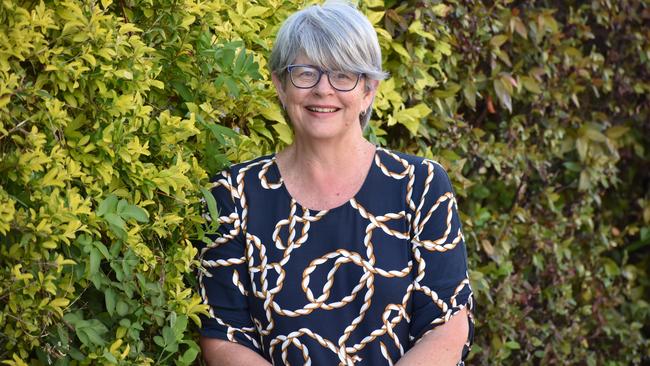Whitsunday psychologist Justine McAllister says mental health needs in Bowen will increase
Justine McAllister said she ‘could have worked 24/7’ to keep up with demand from a coastal community struggling with mental health issues and few places to turn for help.
Whitsunday
Don't miss out on the headlines from Whitsunday. Followed categories will be added to My News.
A registered psychologist retiring after six years in Bowen said she “could have worked 24/7” to keep up with demand from a rural community struggling with mental health issues and few places to turn for help.
Justine McAllister packed up her Powell St office at the end of November, bringing an end to a career spent helping people manage their work and life challenges and reduce associated psychological symptoms.
As one of Bowen’s three private psychologists, Ms McAllister had up to 70 patients on her books at once, and a phone ringing off the hook with many more trying to get in to see her.
There were NDIS participants, GP referrals, WorkCover cases; the ‘worried well’ through to people suffering “incapacitating” anxiety, depression or post traumatic stress disorder.
The born and bred Bowenite would regularly exceed the recommended five patients a day to see extras who were “desperate” for support.

Among the many things Ms McAllister has learned from her clients was how psychology is “one of the only occupations where grey hair is valued” as evidence of maturity and life experience.
But by far her most satisfying moments were when patients successfully implemented her advice to make positive changes outside the consulting room.
“Nothing warms my heart more than when people say ‘you changed my life’,” she said.
“To hear that – and it happens quite a lot – whether it’s feedback about better relationships, or how somebody’s learned to ‘interrupt’ themselves and calm themselves down, people who couldn’t go shopping because they were so anxious have been able to calmly walk into a shopping centre because they’ve used mindfulness techniques that were not available to them before … There’s constant examples.
“The ability to self-regulate your emotions – some people suffering anxiety, especially older people – have never had the opportunity to learn how to do that, they think it’s just part of their personality.
“It’s true some people are more at risk of that but for anyone feeling distressed, there are things they can do to help them draw awareness to what’s happening and helping them find a better way to manage that distress.
“It’s about how can you change the situation and think about it in a way that’s not so upsetting for you.
“There’s always a silver lining, and out of crisis is opportunity – people know that but they just need the tools in their toolbox, they just need help joining the dots.”
The decision to retire was a case of taking her own advice to seek a work-life balance and finally allow herself to explore other interests she had pushed aside – from cheesemaking to pilates to leadlighting, to riding around town on her new electric bike.
With her husband Merv, a nurse at the hospital, she plans to stay in Bowen and stay involved in community development through volunteer work.
Her hope for the town and the wider Whitsunday region was for community leaders to put more emphasis on liveability and opportunities for social connection.
She believed the region’s mental health needs would only increase in line with factors like an ageing population, more chronic health issues, and “completely overrun” GPs, and said more focus on early intervention was the key to curbing related issues such as unemployment and drug abuse.
“Most of the funding [for mental health care] comes from the federal government and the focus is usually on the pointy end, when something absolutely has to be done but there’s so many missed opportunities along the way,” she said.
“There are opportunities for the council to tap into this and look at social infrastructure, community engagement, events to keep kids busy – which is sometimes hard to do in a small town – more innovation around arts and culture.
“As our local leaders, they [councillors] have a role to advocate to attract funding to enhance liveability and bring in support agencies to deliver services.
“And it’s a win-win for everybody – the sector is a major employer, and if there’s opportunities for people to feel included and connected, they’re less likely to need to self medicate [with illicit drugs].
“We need to work together as a community and think about it holistically, not as a piece of the pie.
“We live in paradise but it’s still going to affect outcomes if we don’t get the frameworks right.”




